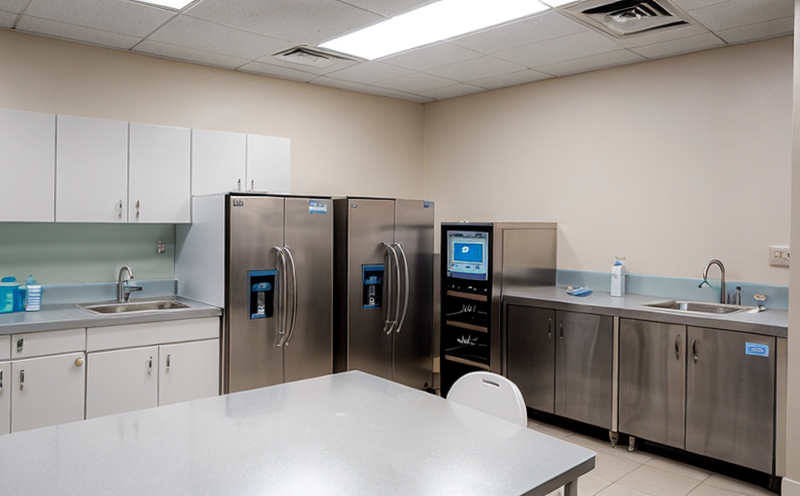Wrap Porosity & Air Removal Performance Testing
In the realm of medical device testing, ensuring that wraps are both impermeable to microorganisms and capable of effectively removing air is crucial. This test evaluates the integrity of wrap materials against contaminants while simultaneously measuring their ability to expel air, a critical aspect for maintaining sterility during storage and distribution.
The primary goal of this testing procedure is to validate that wraps can maintain a sterile environment throughout the supply chain. By ensuring wraps are impermeable to microorganisms, we prevent contamination from external sources. At the same time, effective air removal helps in creating a vacuum seal which not only enhances sterility but also prolongs shelf life by reducing moisture and oxygen.
Our testing methods adhere strictly to international standards such as ISO 11135 for sterilization validation and ASTM F807-20 for medical packaging. These standards provide clear guidelines on how to conduct these tests accurately and reliably, ensuring that the results are both reproducible and comparable across different facilities.
During the testing process, we use specialized equipment designed specifically for this purpose. This includes vacuum chambers capable of generating controlled air pressures and incubators with precise temperature controls. Specimens are prepared according to specific protocols outlined in relevant ISO standards, ensuring consistency in test conditions.
The results from these tests are critical inputs into the overall quality assurance process. They help ensure that medical devices remain sterile until they reach their intended end-users. Additionally, effective air removal contributes significantly to maintaining product integrity and safety over extended periods of storage.
Understanding wrap porosity and air removal performance is essential for several reasons:
- To meet regulatory requirements set forth by authorities like the FDA or EU-MDD (Medical Devices Directive).
- To ensure patient safety by preventing contamination during transport and storage.
- To enhance product shelf life through better preservation of wraps' protective qualities.
Quality and Reliability Assurance
The importance of quality assurance in medical device manufacturing cannot be overstated. With increasing demands for safer, more reliable products, manufacturers must adhere to stringent regulations and standards. Our testing services play a pivotal role in this process by providing accurate data that helps companies ensure their wraps meet these high expectations.
Our team employs advanced techniques and state-of-the-art instrumentation to conduct thorough evaluations of wrap performance. From initial sample preparation through final analysis, every step is meticulously documented and reviewed. This ensures not only compliance with relevant standards but also consistency across multiple batches or production runs.
In terms of reliability assurance, our testing helps identify potential issues early in the development cycle. By identifying flaws before large-scale production begins, manufacturers can address them promptly, reducing costs associated with recalls or rework later on.
Customer Impact and Satisfaction
For customers in the healthcare industry, trust is paramount. When they receive sterile wraps for their devices, they expect them to remain so until use. By offering reliable testing services, we contribute directly to maintaining this level of trust.
Clients benefit from our expertise by gaining insights into how best to optimize their wrap designs and materials. This knowledge can lead to improved product performance, reduced waste, and ultimately, lower overall costs. Moreover, successful completion of our tests provides assurance that the wraps meet all necessary regulatory requirements, enhancing customer satisfaction.
Our commitment to high-quality testing also extends beyond mere compliance; it involves continuous improvement based on feedback from clients. By working closely with them throughout the testing process, we ensure their needs are fully addressed while staying aligned with industry trends and best practices.
Environmental and Sustainability Contributions
- Reducing waste: By ensuring wraps meet strict sterility and air removal standards, fewer units need to be discarded due to contamination or spoilage.
- Promoting efficient use of resources: Properly designed wraps contribute to more effective utilization of materials throughout the supply chain.
- Easing regulatory compliance: Helping manufacturers navigate complex regulatory landscapes ensures smoother operations and reduced risk of non-compliance penalties.





